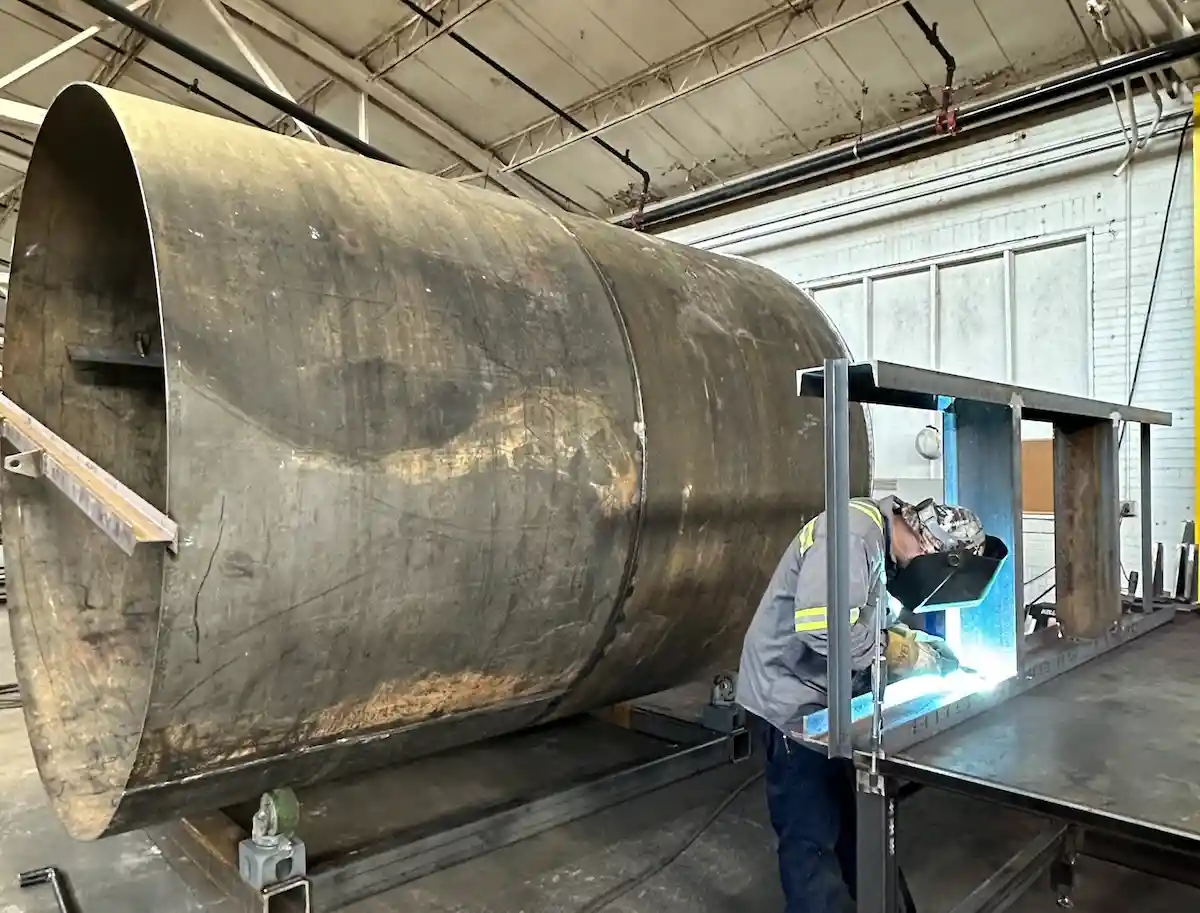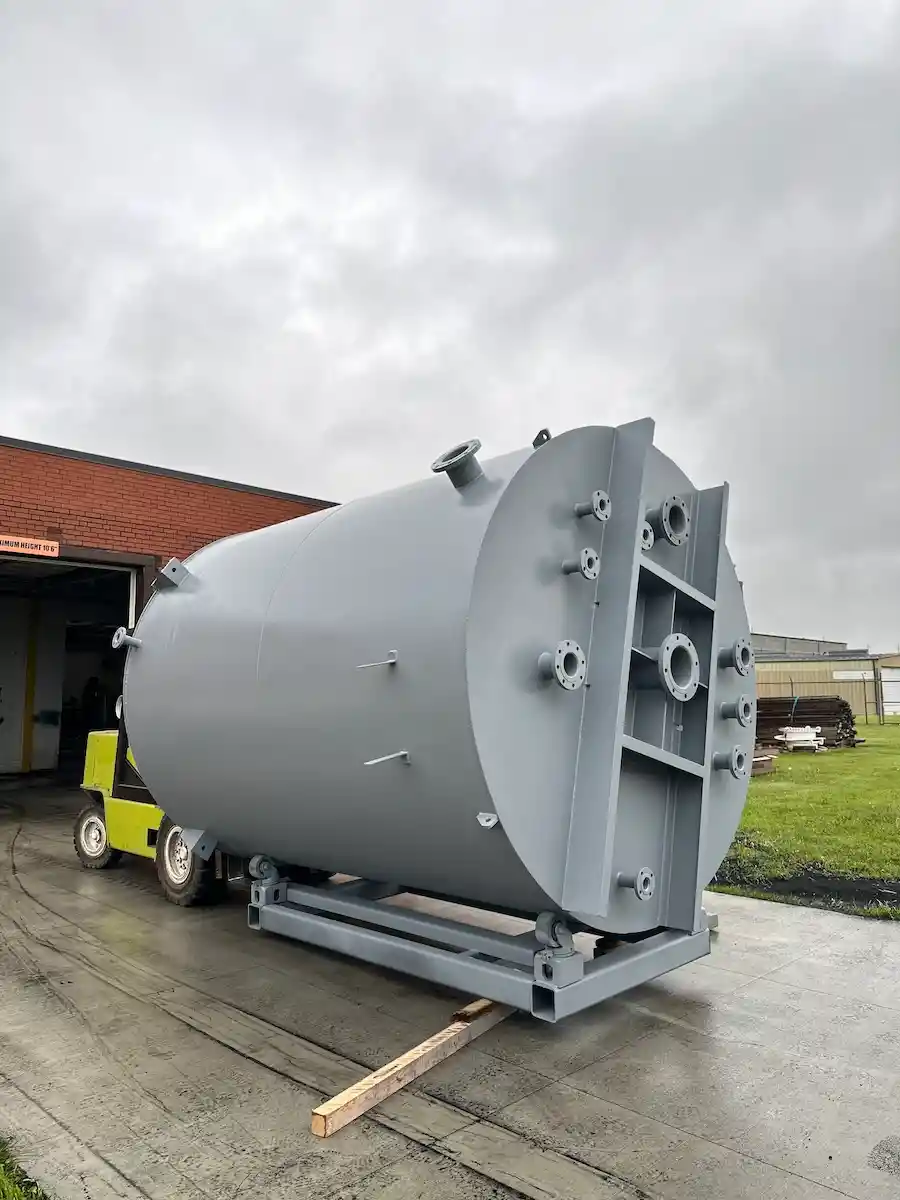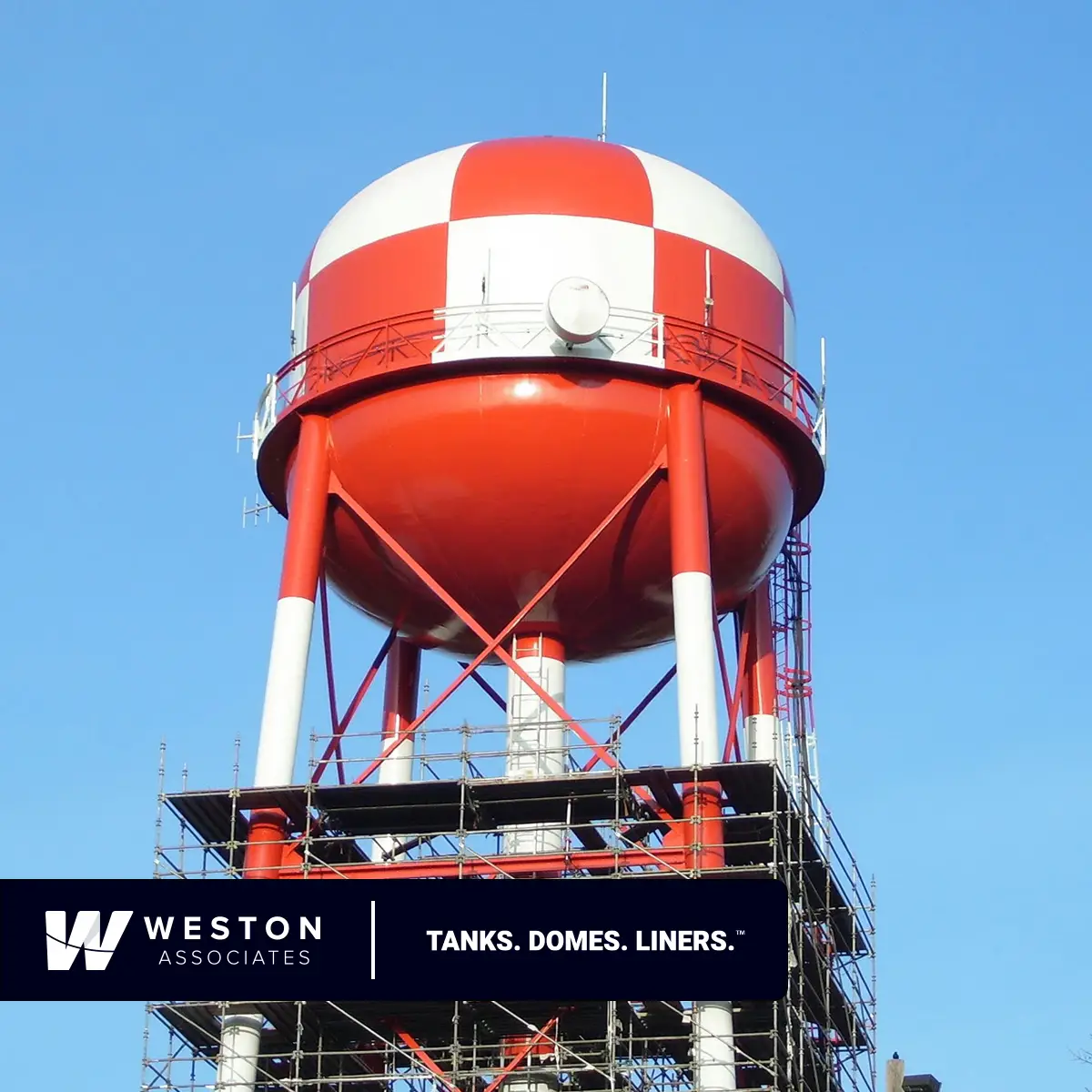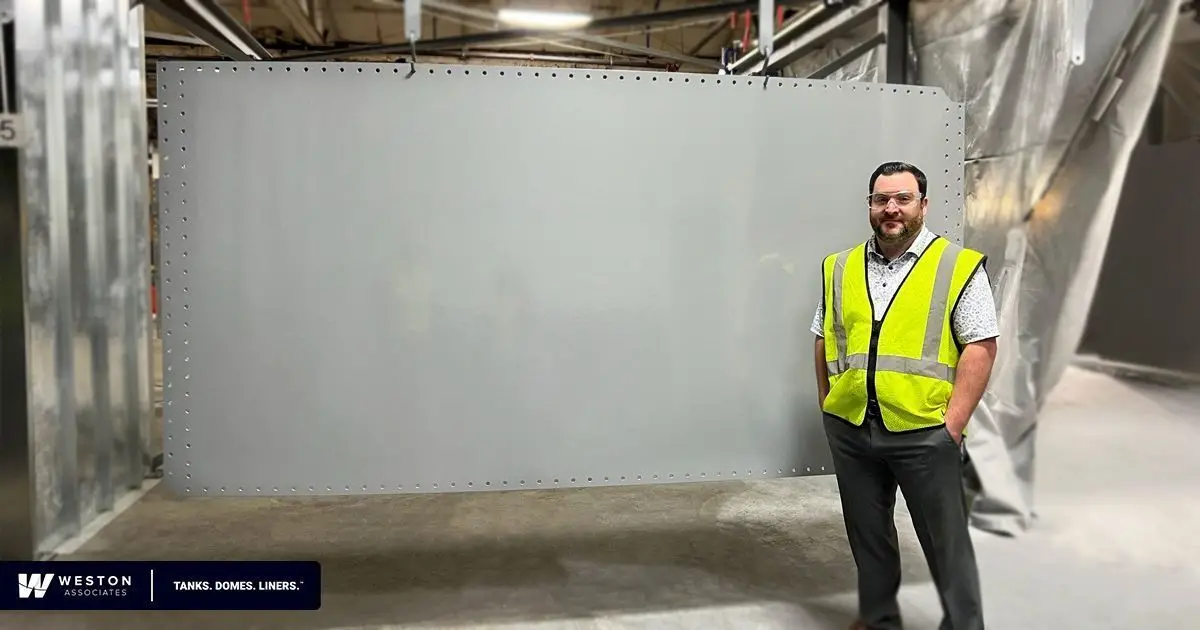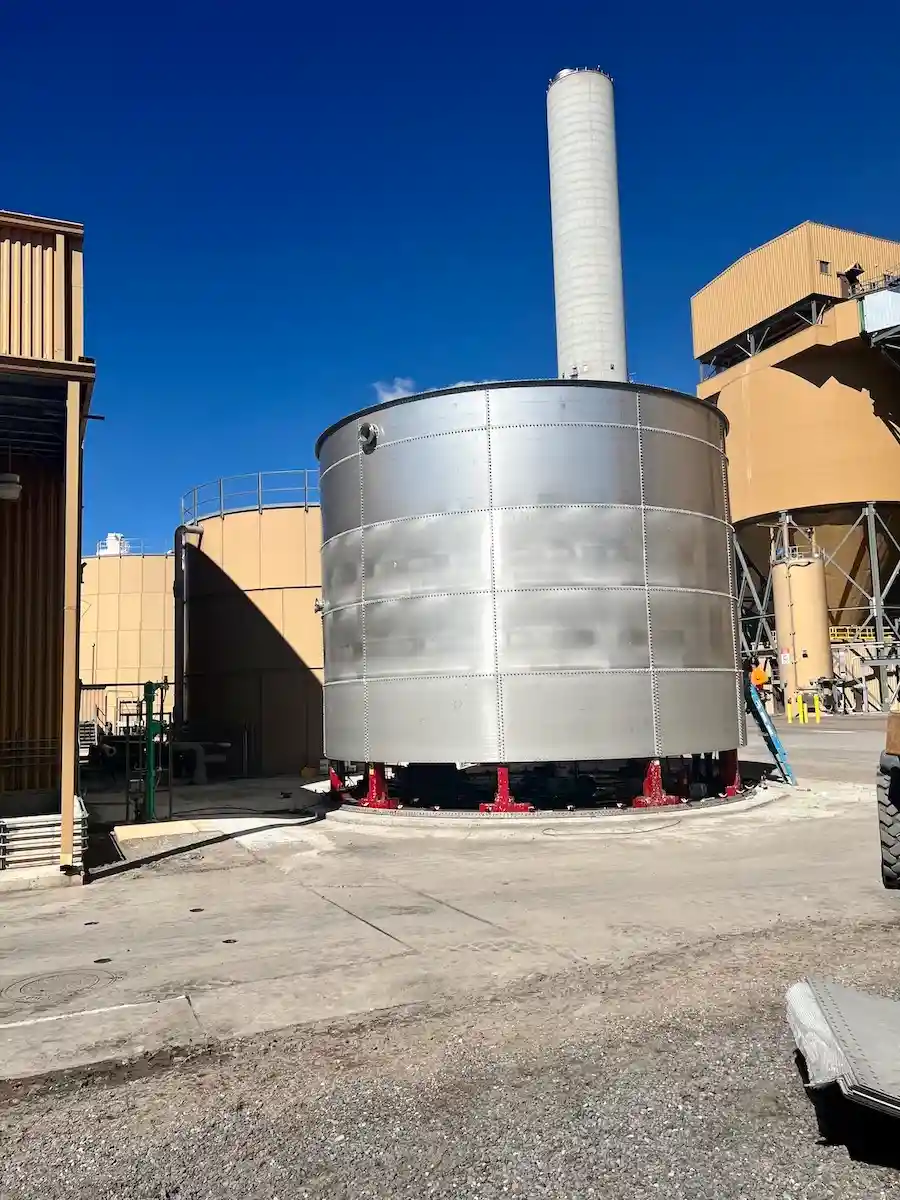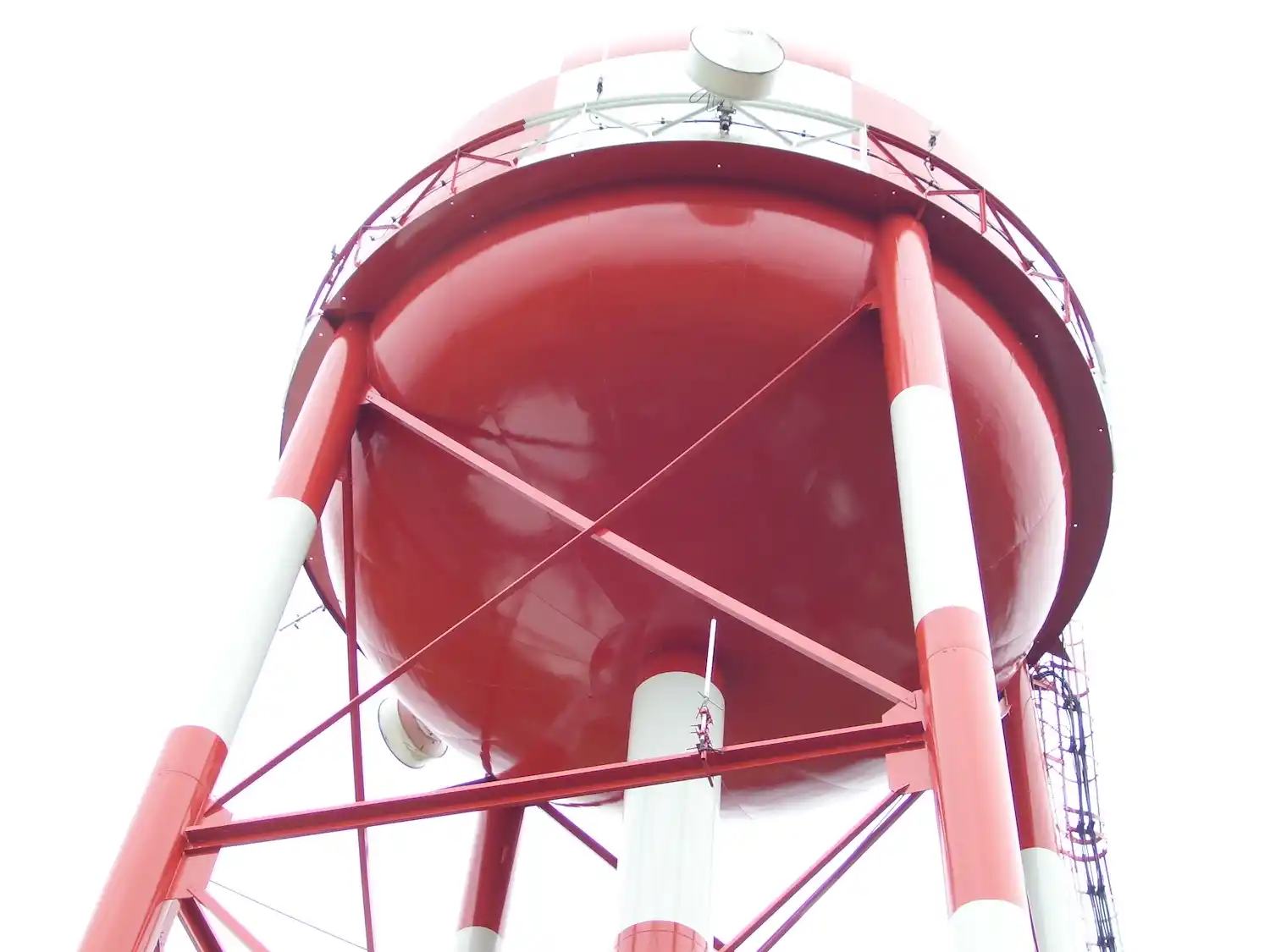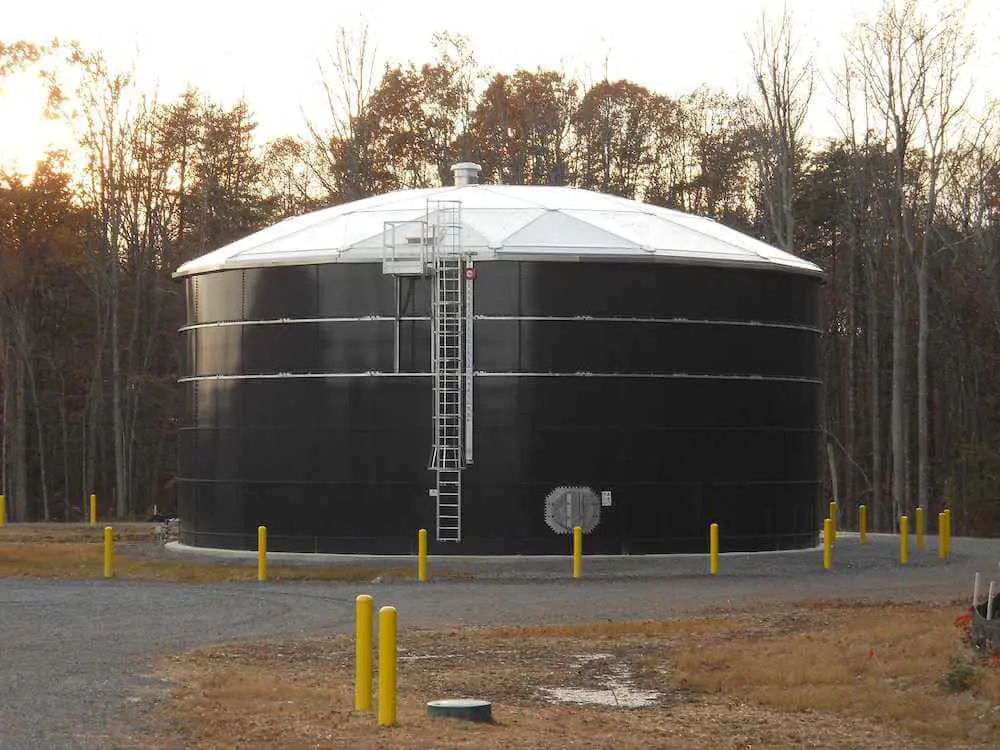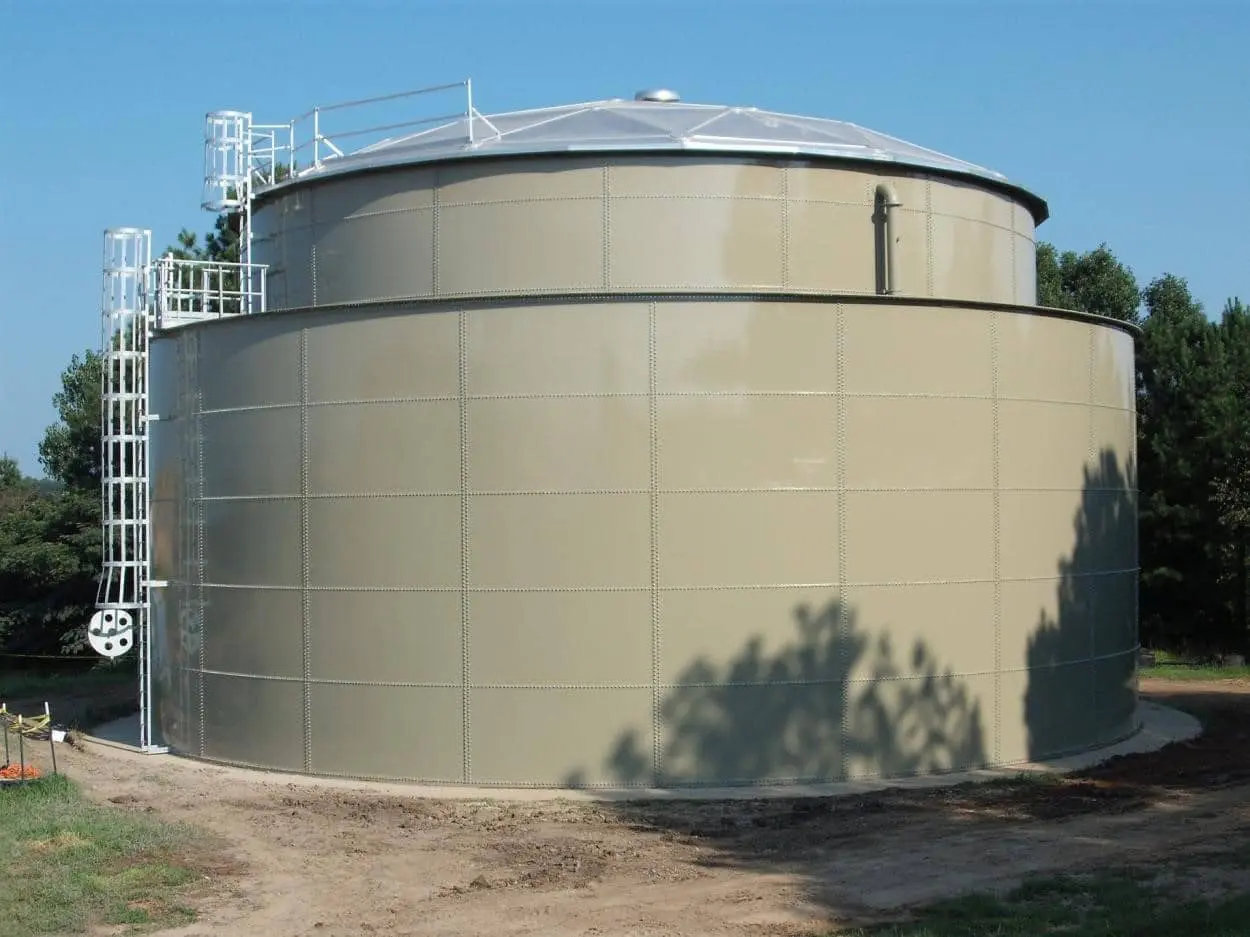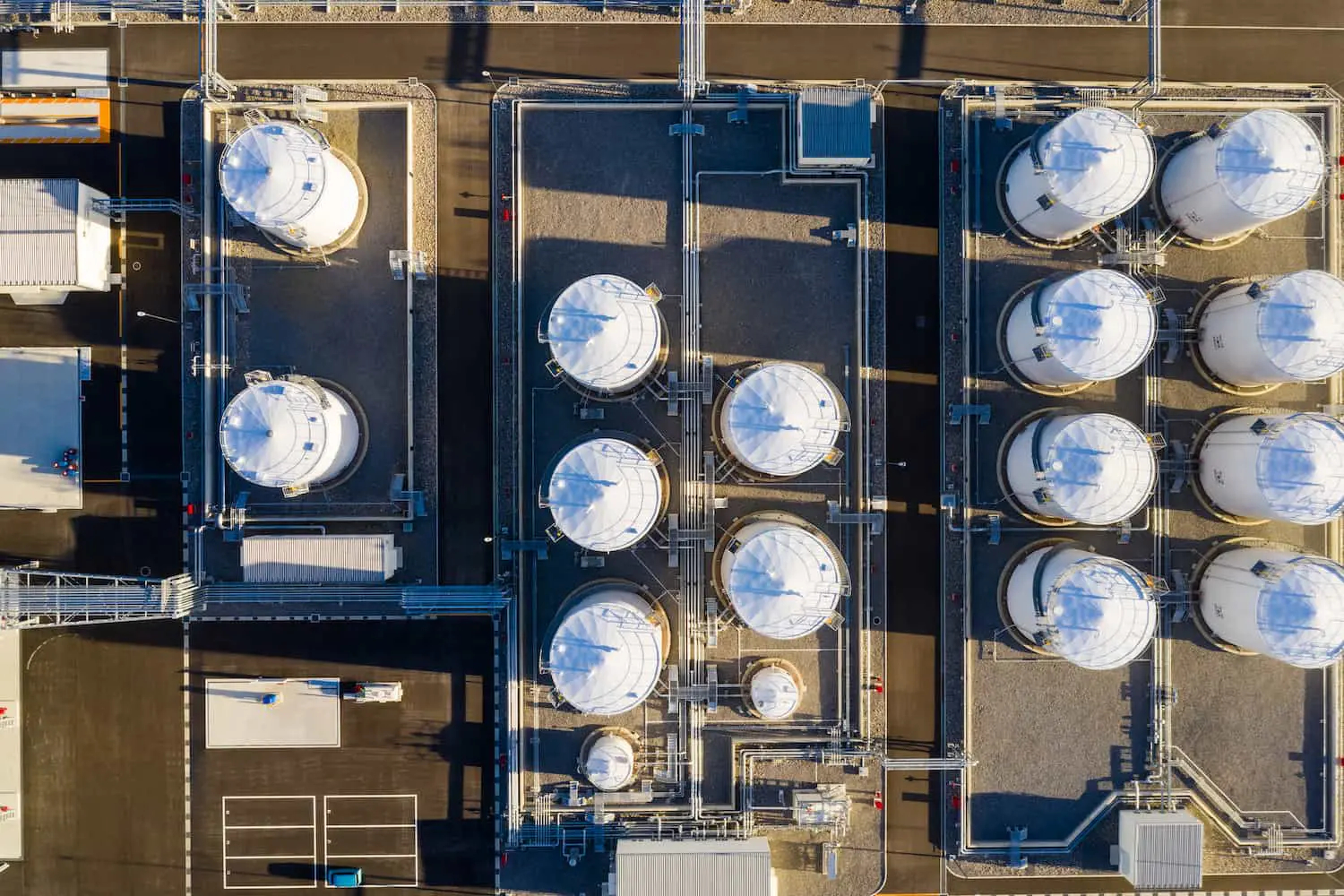
The Weston Shop Welded Tanks We Offer
High Performance Tanks For High Performance Industries.

The Benefits and Applications of Shop Welded Tanks: A Comprehensive Guide
In the world of industrial storage, shop welded tanks have become a game-changer. These durable and versatile tanks offer a wide range of benefits and applications that are revolutionizing various industries. From the oil and gas sector to water treatment plants, the advantages of shop welded tanks are undeniable. One of the top benefits of shop welded tanks is their exceptional strength and reliability. These tanks are meticulously welded in a controlled shop environment, ensuring that each weld is of the highest quality. This results in tanks that can withstand extreme pressures and climates, offering unmatched durability and longevity. Furthermore, shop welded tanks provide flexibility in terms of customization. They can be engineered to meet specific requirements such as size, shape, and capacity. This makes them the ideal choice for businesses that need tailored storage solutions. The applications of shop welded tanks are vast. They are commonly used for storing various liquids, including oil, chemicals, and water. Additionally, they can be utilized for bulk storage, wastewater treatment, and even in agriculture. In this comprehensive guide, we will delve into the benefits and applications of shop welded tanks. So, whether you are considering investing in one or simply want to expand your knowledge, this article is your go-to resource.
Advantages of shop welded tanks
In the world of industrial storage, shop welded tanks have become a game-changer. These durable and versatile tanks offer a wide range of benefits and applications that are revolutionizing various industries. From the oil and gas sector to water treatment plants, the advantages of shop welded tanks are undeniable. One of the top benefits of shop welded tanks is their exceptional strength and reliability. These tanks are meticulously welded in a controlled shop environment, ensuring that each weld is of the highest quality. This results in tanks that can withstand extreme pressures and climates, offering unmatched durability and longevity. Furthermore, shop welded tanks provide flexibility in terms of customization. They can be engineered to meet specific requirements such as size, shape, and capacity. This makes them the ideal choice for businesses that need tailored storage solutions. The applications of shop welded tanks are vast. They are commonly used for storing various liquids, including oil, chemicals, and water. Additionally, they can be utilized for bulk storage, wastewater treatment, and even in agriculture. In this comprehensive guide, we will delve into the benefits and applications of shop welded tanks. So, whether you are considering investing in one or simply want to expand your knowledge, this article is your go-to resource.
Applications of shop welded tanks
Shop welded tanks offer numerous advantages that make them a preferred choice for many industries. Firstly, their exceptional strength and reliability ensure that they can withstand the harshest conditions. Unlike field welded tanks, shop welded tanks are fabricated in a controlled environment, allowing for precise welding techniques and strict quality control measures. This results in tanks that are built to last, with superior resistance to leaks, cracks, and other structural issues. Another advantage of shop welded tanks is their flexibility in customization. These tanks can be engineered to meet specific requirements in terms of size, shape, and capacity. Whether you need a small tank for a compact space or a large tank with a unique shape, shop welded tanks can be tailored to your exact needs. This makes them highly versatile and suitable for a wide range of applications. Furthermore, shop welded tanks offer shorter installation times compared to field welded tanks. Since they are fabricated off-site, the tanks arrive ready for installation, eliminating the need for lengthy on-site construction. This not only saves time but also minimizes disruption to ongoing operations. Additionally, the controlled shop environment ensures that the tanks are built efficiently, reducing the overall project timeline. In summary, the advantages of shop welded tanks include exceptional strength and reliability, flexibility in customization, and shorter installation times. These factors make shop welded tanks a cost-effective and efficient solution for various industries.
Shop welded tanks vs field welded tanks
Shop welded tanks have a wide range of applications across different industries. One common use is for storing liquids such as oil, chemicals, and water. These tanks are designed to handle different types of liquids, including hazardous materials, and are equipped with proper ventilation and safety features.
Another application of shop welded tanks is bulk storage. Industries that require large quantities of materials, such as mining and agriculture, often utilize these tanks for efficient storage and easy access. Shop welded tanks can be built to accommodate high volumes, ensuring that materials can be stored and accessed in a convenient and organized manner.
Wastewater treatment is another area where shop welded tanks play a crucial role. These tanks can be used to store and treat wastewater before it is discharged or reused. With the ability to customize the tanks based on specific treatment requirements, shop welded tanks provide an effective solution for wastewater management. Additionally, shop welded tanks find applications in the agricultural sector. They can be used for storing fertilizers, pesticides, and other agricultural chemicals. The robust construction of shop welded tanks ensures that these materials are securely stored, preventing contamination and ensuring the safety of agricultural operations.
In summary, shop welded tanks have diverse applications, including storing liquids, bulk storage, wastewater treatment, and agricultural use. The versatility and customization options of these tanks make them suitable for various industries.
Factors to consider when choosing a shop welded tank
When it comes to choosing between shop welded tanks and field welded tanks, it is important to consider the specific requirements of your project. Both types of tanks have their own advantages and considerations.
Shop welded tanks offer superior quality control due to their fabrication in a controlled environment. The welding process is carefully monitored, resulting in tanks with consistent weld quality and structural integrity. This makes shop welded tanks highly reliable and durable, especially in demanding industrial settings. On the other hand, field welded tanks are constructed on-site, which can be advantageous in certain situations. Field welded tanks allow for greater flexibility in terms of size and shape since they can be built directly at the installation site. This is beneficial when dealing with space constraints or when the tank needs to fit into an existing structure.
Cost is another factor to consider when comparing shop welded tanks and field welded tanks. Shop welded tanks often have higher upfront costs due to the controlled fabrication process and higher quality materials. However, they tend to have lower maintenance and repair costs over the lifespan of the tank. Field welded tanks may have lower upfront costs, but ongoing maintenance and repairs can be more expensive. In summary, the choice between shop welded tanks and field welded tanks depends on factors such as project requirements, space limitations, and budget considerations. Both types of tanks have their own advantages, and it is important to weigh the pros and cons before making a decision.
Common misconceptions about shop welded tanks
When selecting a shop welded tank, there are several key factors to consider. These factors will ensure that the tank meets your specific requirements and provides optimal performance and longevity.
One important factor is the material used for the tank construction. The material should be corrosion-resistant and suitable for the stored liquid or material. Common materials used for shop welded tanks include carbon steel, stainless steel, and fiberglass. Each material has its own advantages and considerations, so it is crucial to choose the most appropriate one for your application.
Another factor to consider is the tank design and customization options. The tank should be engineered to meet your specific size, shape, and capacity requirements. Additionally, consider features such as access points, safety measures, and fittings that may be required for your application. Working closely with a reputable tank manufacturer will ensure that the tank is designed and built to your exact specifications.
Installation requirements should also be taken into account. Consider factors such as site access, foundation requirements, and any necessary permits or certifications. Proper installation is crucial for the performance and longevity of the tank, so it is important to work with experienced professionals who can handle the installation process efficiently and safely.
Furthermore, consider the reputation and experience of the tank manufacturer. Look for a manufacturer with a proven track record of delivering high-quality tanks and providing excellent customer service. A reputable manufacturer will be able to guide you through the selection process, offer expert advice, and provide ongoing support for your tank.
In summary, when choosing a shop welded tank, consider factors such as the material used, tank design and customization options, installation requirements, and the reputation of the tank manufacturer. Taking these factors into account will ensure that you select a tank that meets your specific needs and delivers optimal performance.
Maintenance and inspection of shop welded tanks
Despite the numerous benefits and applications of shop welded tanks, there are some common misconceptions that need to be addressed. These misconceptions may prevent businesses from fully understanding the value of shop welded tanks and making informed decisions.
One misconception is that shop welded tanks are more expensive than field welded tanks. While it is true that shop welded tanks may have higher upfront costs, they often have lower maintenance and repair costs over the lifespan of the tank. The superior quality and durability of shop welded tanks result in fewer issues and longer service life, ultimately saving costs in the long run.
Another misconception is that shop welded tanks are difficult to transport and install. While shop welded tanks are fabricated off-site, they are designed for easy transportation and installation. The tanks can be transported in sections and assembled on-site, making them suitable for various locations and installation scenarios.
Additionally, some believe that shop welded tanks have limited customization options. However, this is far from the truth. Shop welded tanks can be engineered to meet specific size, shape, and capacity requirements. The customization options are vast, allowing businesses to have tanks that perfectly fit their needs.
In summary, it is important to address common misconceptions about shop welded tanks. By dispelling these misconceptions, businesses can make informed decisions based on the true benefits and capabilities of shop welded tanks.
Environmental considerations for shop welded tanks
Proper maintenance and regular inspections are crucial for the performance and longevity of shop welded tanks. By implementing a comprehensive maintenance and inspection program, businesses can ensure that their tanks remain in optimal condition and continue to fulfill their intended purpose.
Regular visual inspections should be conducted to identify any signs of damage, leaks, or structural issues. This includes checking for corrosion, cracks, loose fittings, and any other abnormalities. Inspections should be performed by qualified personnel who are familiar with tank systems and have the necessary expertise to identify potential problems.
In addition to visual inspections, tanks should undergo periodic non-destructive testing (NDT) to assess the integrity of the welds and structural components. NDT methods such as ultrasound, radiography, and magnetic particle testing can detect hidden defects that may not be visible during visual inspections. These tests should be carried out by certified technicians who are trained in the specific NDT methods.
Regular cleaning and maintenance of the tanks are also essential. This includes removing sediment, sludge, and other deposits that may accumulate over time. Proper cleaning procedures should be followed to ensure that the tank remains free from contaminants and operates at optimal efficiency.
Furthermore, it is important to follow any manufacturer-recommended maintenance guidelines and procedures. This may include routine checks of valves, vents, and other components, as well as lubrication of moving parts. Adhering to the manufacturer’s recommendations will help prolong the lifespan of the tank and prevent unnecessary damage or failures.
In summary, regular maintenance and inspections are essential for the performance and longevity of shop welded tanks. By implementing a comprehensive maintenance program and conducting regular inspections, businesses can identify potential issues early on and take appropriate actions to ensure the continued reliability and efficiency of their tanks.
Case studies: Successful applications of shop welded tanks
When it comes to shop welded tanks, environmental considerations are of utmost importance. These tanks play a significant role in storing potentially hazardous materials, and it is crucial to ensure that they are designed and operated in an environmentally responsible manner.
One important consideration is the choice of tank material. The material should be compatible with the stored liquid or material, preventing any potential contamination or leaks. For example, if the tank will be used for storing chemicals, it is important to choose a material that is resistant to corrosion and chemical reactions.
Proper containment and spill prevention measures should also be in place. This includes secondary containment systems, such as bund walls or double-walled tanks, to prevent leaks or spills from reaching the environment. Additionally, tanks should be equipped with appropriate venting and ventilation systems to prevent the buildup of potentially harmful gases.
In terms of maintenance and cleaning, proper disposal of waste materials is crucial. Any waste generated during tank cleaning or maintenance should be handled and disposed of according to relevant environmental regulations. This may include proper treatment, recycling, or disposal at approved facilities.
Furthermore, regular inspections and monitoring should be conducted to ensure compliance with environmental regulations. This includes monitoring for leaks, spills, or any other potential environmental impacts. Implementing an environmental management system that includes regular monitoring and reporting will help identify and address any issues promptly.
In summary, environmental considerations should be a top priority when it comes to shop welded tanks. By choosing the right tank material, implementing proper containment measures, following environmentally responsible maintenance procedures, and complying with relevant regulations, businesses can ensure that their tanks are operated in a way that minimizes environmental impact.
Conclusion: The future of shop welded tanks
To demonstrate the real-world applications and benefits of shop welded tanks, let’s explore some case studies where these tanks have been successfully implemented.
Case Study 1: Oil and Gas Industry
In the oil and gas industry, shop welded tanks are widely used for storing crude oil, refined products, and chemicals. One successful application of shop welded tanks is in offshore oil platforms. These tanks are engineered to withstand the harsh conditions of the offshore environment, including extreme temperatures, corrosive saltwater, and high winds. The exceptional strength and durability of shop welded tanks make them ideal for offshore oil storage, ensuring the safe and efficient operation of oil platforms.
Case Study 2: Water Treatment Plant
Shop welded tanks have proven to be highly effective in water treatment plants. These tanks are used for storing treated water, sludge, and chemicals used in the treatment process. The customization options of shop welded tanks allow for the design of tanks that meet specific treatment requirements, such as proper ventilation, access points for maintenance, and the ability to withstand chemical reactions. Shop welded tanks provide a reliable and efficient solution for water treatment plants, ensuring the safe storage and management of water resources.
Case Study 3: Agriculture
In the agricultural sector, shop welded tanks find applications in storing fertilizers, pesticides, and other agricultural chemicals. These tanks are engineered to withstand the corrosive nature of agricultural chemicals, preventing contamination and ensuring the safety of agricultural operations. The flexibility in customization options allows for tanks that can be easily integrated into existing agricultural infrastructure, providing convenient and secure storage for agricultural inputs.
Stainless Steel Tanks
Stainless steel storage tanks are a recognized and reliable solution in providing bulk commodity storage for many types of content. These tanks are used in a wide range of industries, typically covering water and waste water treatment, potable water storage and related mediums.
Stainless Steel TanksWeston NanoCoated™ Tanks
Weston NanoCoating is a two-coat system featuring low VOC epoxy primer and topcoat with significant advantages not only in corrosion protection, but also in application time and effort. WNC is a replacement to conventional GSF systems traditionally used to protect steel surfaces in any environment. The Weston NanoCoat is only available from Weston & Associates.
Weston NanoCoated™ TanksGlass Fused-to-Steel
Weston and Associates glass-lined above-ground water tanks combine the durability and adaptability of steel with the corrosion resistance of glass. In applications, for the storage of potable water, wastewater, petroleum, chemicals, and dry bulk, these industrial bolted tanks, glass fused-to-steel architecture is an outstanding solution.
Contact UsWeston PowderCoat™ Tanks
Weston is proud to offer high-quality coating solutions, including their unique Weston PowderCoat™ (WPC) created in partnership with Sherwin Williams. The WPC is an epoxy powder coating that exceeds industry standards and is tested and certified for use in drinking water systems. It offers excellent durability and protection for fittings, pipes, tanks, and valves.
Weston PowderCoat™ TanksWe've seen our fair share of changes in the industry, from the products to the services. With change always comes opportunity and Weston & Associates leads the pack as a trusted industry influencer that embraces that change.
